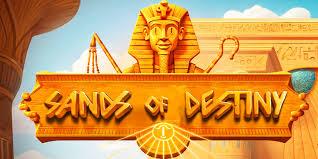
Unveiling Samurai 888 Katsumi: Legacy of Honor & Skill
Samurai 888 Katsumi embodies the pinnacle of martial mastery, blending timeless tradition with daring innovation. His philosophy inspires warriors worldwide, and platforms like PHTAYA highlight the enduring influence of his strategies, discipline, and honor. Every movement he made reflects a balance of precision and wisdom, bridging historical samurai values with modern practice.
The Philosophy Behind Samurai 888 Katsumi
At the heart of Samurai 888 Katsumi’s approach was a philosophical outlook deeply rooted in Bushido—the code of the samurai. His philosophy emphasized humility, respect, and mastery over oneself, advocating that true strength derives less from physical prowess and more from mental discipline. Katsumi believed that martial arts were a path to enlightenment, offering tools for harmony within oneself and with the world. His teachings encouraged practitioners to view challenges as opportunities for self-discovery and to approach combat with compassion, discipline, and strategic insight rather than mere aggression.
Katsumi’s philosophy went beyond combat; it embraced the idea of personal evolution through rigorous discipline and self-awareness. He viewed every training session as an opportunity for self-reflection, recognizing that mastery was a journey that extended into everyday life. His principles serve as a reminder that martial arts are not just about defeating an opponent but about cultivating inner peace and resilience. This spiritual dimension of his philosophy continues to influence modern martial arts practices, inspiring practitioners to integrate mindfulness and ethical considerations into their training and daily lives.
Samurai 888 Katsumi in Popular Culture
In popular culture, Samurai 888 Katsumi has been mythologized as an iconic figure whose story transcends martial arts to symbolize virtue, resilience, and strategic genius. His image often appears in films, comic books, and literature portraying a noble warrior with a blend of fierce strength and compassionate wisdom. These depictions, while cinematic, draw upon real qualities that define his legend—balance, skill, and moral clarity. His portrayal in media often emphasizes his strategic mind, making him more than just a fighter but a philosopher and tactician whose insights have universal appeal.
This cultural representation has helped elevate the figure of Katsumi from historical figure to cultural icon, inspiring not just martial artists but also storytellers and artists. His mythos embodies the ideal samurai—relentlessly disciplined yet compassionate—resonating with audiences seeking role models that embody integrity and resilience. Through movies, animations, and books, Samurai 888 Katsumi continues to inspire new generations, emphasizing timeless values that remain relevant in contemporary struggles for justice, honor, and societal harmony. His enduring presence in popular culture cements his legacy as a symbol of martial virtue.
The Art of War according to Samurai 888 Katsumi
Katsumi’s combat approach prioritized mental acuity, adaptability, and strategic foresight. Techniques shared on PHTAYA Casino emphasize his use of timing, psychological insight, and terrain awareness, showing that true mastery comes from understanding both the mind and the battlefield.
Katsumi’s teachings underscore that war, in its highest form, is about harmony and balance rather than brute force. He viewed conflict as an intrinsic part of life, one that can be navigated with wisdom and restraint. His principles have inspired military strategists and martial artists alike, emphasizing that victory is most sustainable when rooted in understanding, patience, and moral authority. His philosophies challenge us to think beyond brute strength, advocating for a sophisticated, principled approach to confrontations both in martial arts and in life’s broader conflicts.
Samurai 888 Katsumi: Battles and Strategies
Throughout his martial career, Samurai 888 Katsumi faced numerous adversaries, each encounter further refining his tactical approach. He was renowned for his ability to adapt his strategies to various opponents, often employing unconventional tactics that caught adversaries off guard. His focus was not solely on overpowering but outthinking opponents—using misdirection, precision strikes, and psychological warfare to gain the upper hand. His strategic acumen extended into understanding his opponent’s mindset, creating a psychological edge that often led to swift, decisive victories.
Katsumi’s most famous battles are often studied for their strategic depth, showcasing a mastery of timing, space, and psychological manipulation. His lessons emphasize that true strategy involves understanding the battlefield—both physical and mental—and adapting proactively. His battles serve as metaphorical lessons for life, illustrating the importance of preparation, adaptability, and moral integrity—values that underpin his martial philosophy. His strategies continue to influence modern martial arts training, embodying a holistic approach that integrates technique, mind, and moral purpose.
Influence of Samurai 888 Katsumi on Modern Martial Arts
The influence of Samurai 888 Katsumi on modern martial arts is profound, impacting both practical techniques and philosophical outlooks. His seamless integration of traditional samurai techniques with innovative tactics inspired many martial arts schools to embrace adaptability and mental discipline. His emphasis on mindfulness, strategic thinking, and ethical conduct has shaped contemporary martial arts curricula, encouraging practitioners to develop holistically rather than focusing solely on physical prowess. Many modern fighters credit Katsumi’s philosophies for enhancing their resilience, focus, and moral compass in competition and personal growth.
Furthermore, Katsumi’s teachings emphasize that martial arts should serve as a means of self-empowerment and societal contribution, advocating for martial artists to uphold honor and justice. His influence extends into popular martial arts industries, inspiring trainers, authors, and cultural icons to promote a balanced approach to combat training—one that integrates body, mind, and spirit. His legacy encourages ongoing innovation rooted in tradition, ensuring that martial arts continue to evolve while remaining true to their ethical and philosophical roots.



